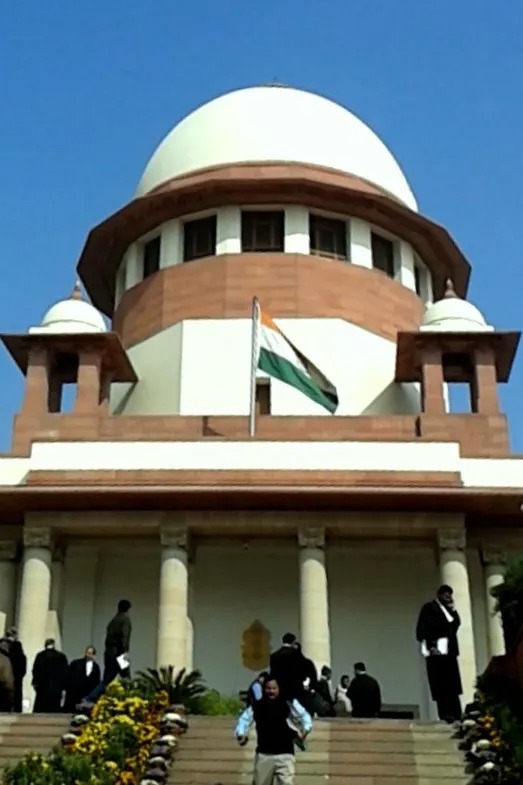Dr. B. Siva Sankara Rao, J.@mdashThe insurer, who is 3rd respondent in the claim petition, filed this appeal aggrieved by the Order/Award of the learned Chairman of the Motor Accidents Claims Tribunal-cum-Principal District Judge, R.R. District at L.B. Nagar, (for short, ''Tribunal'') in M.V.O.P. No. 247 of 2007 dated 14.06.2010, awarding compensation of Rs. 2,66,000/- (Rupees two lakhs sixty six thousand only) with interest at 7.5% per annum with the finding that respondent Nos. 2 & 3 alone are jointly and severally liable and not the 1st respondent-APSRTC as against the claim of the claimants 1 to 4 of Rs. 4,00,000/- (Rupees Five lakhs only), in the claim petition u/s 166 of the Motor Vehicle Act, 1988 (for short, ''the Act''). Heard Sri A.V.K.S. Prasad, the learned standing counsel for the appellant-United India Insurance Company Limited, Sri Prabhakar Bommagani, learned counsel for the respondents 1 to 4 (claimants) AND Sri K. Madhava Reddy learned standing counsel for the 5th respondent-APSRTC. Taken as heard, the owner of the hired vehicle-6th respondent for his absence, to decide on merits. The parties hereinafter are referred to as arrayed before the Tribunal for the sake of convenience in the appeal.
2. The contentions in the grounds of appeal by the 3rd respondent-insurer of the hired bus with APSRTC (1st respondent), hired by the owner (2nd respondent) in nutshell are that the learned Tribunal below went wrong in fastening the liability on the insurer only and thus the award of the Tribunal is contrary to law, weight of evidence and probabilities of the case in arriving wrong conclusion besides the quantum of compensation awarded is excessive and outcome of wrong application of multiplier and wrong taking of the income of deceased and hence to allow the appeal. It is further contended that the Tribunal mis-considered the evidence of the R.W. 1 officer of the insurer even he categorically deposed that the insured did not pay the additional premium covering the risk for the hired bus in arriving an arbitrary conclusion and hence to set aside said award and exempt the insurer from liability. Whereas, it is the contention of claimants who are the appeal respondents 1 to 4 that the award of the Tribunal is just and for this Court while sitting in appeal there is nothing to reduce other than to enhance the compensation, but for no cross-objections and hence to dismiss the appeal. The appeal 5th respondent A.P.S.R.T.C. also contested in the same lines.
3. Now the points that arise for consideration in the appeal are:
1. Whether the compensation awarded by the Tribunal fixing liability on the insurer of the bus hired with APSRTC and requires interference by this Court while sitting in appeal against the award and if so to what extent and with what liability against whom to arrive a just compensation and with what rate of interest?
2. To what result?
POINT-1:
4. The facts of the case as proved before the Tribunal and not in dispute in this appeal are that the deceased Mohsin Ali Baig, aged about 22 years died in a motor accident which was occurred on the night of 26.01.2007 at about 9.15 P.M. when he was going on a scooter bearing AEX 2029 along with a pillion rider by name Kowshik Goud, when reached near Chandanagar bus stop, a passenger bus bearing No. AP 28 V 6866 hit the bike from behind, which resulted the death of the bike rider. The Tribunal held that the accident was occurred completely due to the rash and negligent driving of the driver of the crime bus belongs to the claim petition 2nd respondent hired with APSRTC-1st respondent and awarded compensation of Rs. 2,66,000/- (Rupees Two Lakhs Sixty Six thousand only) against respondent Nos. 2 & 3 in the claim petition jointly and severally.
5. The fact that the accident was the result of rash and negligent driving of the driver of the crime bus which belongs to the 2nd respondent that was hired to the 1st respondent even prior to the insurance covered by Ex. B-1 policy with 3rd respondent is not in dispute including from the evidence of R.W. 1 much less in the grounds of appeal. The only contention from the insurer to exempt from liability or claiming non liability before the Tribunal was that the driver was not having a valid driving licence and there is violation of terms and conditions of the policy. The insurer in proof of averments made no little effort to discharge the burden to say the driver was not having valid licence of the hired bus as held by the Tribunal and now the same is not urged in the appeal. Now, though not raised the contention either in the counter or in the evidence before the tribunal, rather than in the grounds of appeal stating that the owner of the vehicle did not pay the additional premium for the vehicle hired with APSRTC while insuring the vehicle in compliance with IMT-44, the insurer is not liable. It is not tenable for the reasons that once the very policy covered by Ex. B-1 admittedly issued referring the crime vehicle as hired with APSRTC and when the hired vehicle is within the knowledge while insured, the alleged deficit payment of premium noticed if at all is to demand by notice and recover, other than that it does not absolve the insurance company from payment of compensation. Apart from the above, said contention in the appeal is without foundation of pleading and evidence before the trial Court. It is for the reason that the insured is liable to satisfy the claim by indemnifying the owner and even for that matter as the vehicle hired with A.P.S.R.T.C. during subsistence of hire agreement to the limited purpose of APSRTC is also the owner to indemnify from the policy issued is subsequent to the hire agreement with the APSRTC. So far as the contention of no specific permission obtained from the insurer to hire the bus concerned, it is also unsustainable as it is within the knowledge of the insurer; having issued the policy for the hired bus, after the hire agreement and not before. Further any lack of knowledge of the insurer about alleged hiring of bus does not absolve its liability. The expression of the Apex Court in
There is no any statutory duty cast on the owner under the Act or under any Rules to seek permission from or give intimation to the Insurance Company in case the vehicle is attached with the RTC for being plied by it. Therefore, it is clear that the Insurance Company is trying to evade its liability on flimsy grounds or under misconception of law.
Therefore, no such permission is required under law and the same was also expressed in the Full Bench Judgment of this Court reported in APSRTC, Hyderabad v. B. kanakaratnabai 2013 (1) ALD 644 (FB)
6. Having regard to the above, there are no grounds to sustain the appeal contentions raised by the insurer much less to exempt or exonerate or to order pay and recovery in favour of the insurer. Accordingly point No. 1 is answered.
7. In the result, the appeal is dismissed. There is no order as to costs. Miscellaneous petitions, if any, pending in this appeal shall stand closed.

